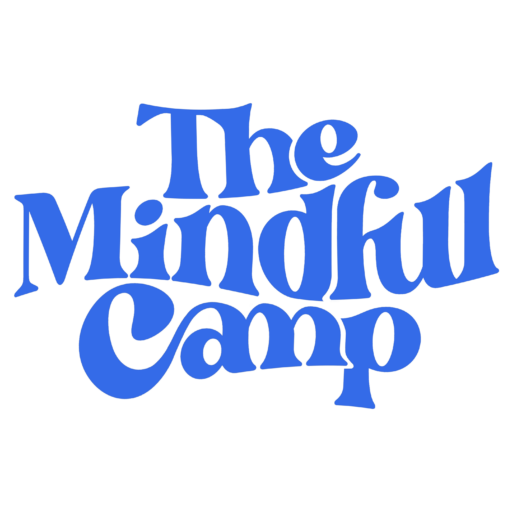A child’s personality is developed in many ways. Its family, its school, its extra-school activities, all of them play a great influence in building character. Kids are especially motivated when learning new skills and experiencing new challenges, both life-changing situations. In that sense, holiday camps blend those two nicely, into a fun and exciting adventure for your children. This article will discuss 10 Ways Holiday Camps will prepare your child for life, explaining how it can be pivotal in the kids’ development, focusing on the skills you can learn from camping.
Why should your child go to holiday camps?
Studies from prestigious institutes such as Harvard Graduate School of Education suggest that Summer Camps’ dynamics are building blocks to crucial Social-Emotional (SE) skills. SE learning takes place when kids stay away from their parents, meet and relate to other peers, and try out new challenges.
Core values that can be fostered in camps are independence, empathy, decision-making, and self-awareness. These values will come in handy throughout their adult life, as both college and any job they pursue require reliable individuals who can properly relate to their colleagues and face daily tasks, both old and new. These foundational personality traits cannot easily be taught in a class. They must come in the form of experiences, something that holiday camps know best and include organically in their activities.
How does camping help your child develop personal character?
It’s a fact that childhood years are pivotal for your kid’s personal character development. As mentioned, defining the personality exceeds what can be taught as part of the school curriculum. It comes from how they relate to their teachers, schoolmates and friends, parents, and everyone else in their environment. It is also a result of the activities they engage in, the way they do them, and their reflections on how they do what they do. That is why summer camps fit perfectly in that middle ground between traditional teaching and more experience-based learning.
There are many traits children develop in holiday camps. Some of the most important ones are:
- Respect for diversity: summer camps usually receive very different kids from all over the country. Meeting children from diverse backgrounds boosts their respect for differences.
- Willingness to try new things: camping faces them with foods and activities they might not regularly see. In the future, they will be able to try new things, easing their way through regular day-to-day new situations.
- Self-confidence: each time they succeed in doing new things or progressing in their holiday camp activity, your kid will reassure his/her self-esteem.
- Tolerance to frustration: failure and retrying is also part of coming. Your kid must learn how to cope with mistakes, taking them as an opportunity to improve, something that summer camps use in the kids’ favor.
- Playing a part in something bigger: whether it’s following the lead of their coordinators, or mentoring young ones, kids form a sense of community and a role within a structure, something all jobs require.
What skills can a child learn from camping?
At this point, you must be wondering what kids should learn at camps. Camping helps children develop skills that will be useful in the long run through to adulthood. There are many benefits of Holiday Camps for your children or teen’s development. Some of the most relevant ones are:
- Self-identification
- The pursuit of their life-long passion
- Relating to others
- Resiliency
- Teaming
10 Ways Holiday Camps Will Prepare Your Child for Life
Let’s go through 10 lifelong skills that will help your kid prepare for many future situations they face. They are different experiences that they go through while camping, exercising fundamental life skills.
- They become resilient
- They move independently
- They learn to trust others
- They test their lateral thinking
- They exercise decision-making
- The exerciser their Social and Emotional Intelligence (SEI)
- They have a sense of purpose
- They have healthy habits
- They endure an austere week
- They work as a team
1. They become resilient
We spoke about trying, failing, and trying again. Overcoming difficulties is a key aspect of life, something holiday camps help your kids deal with, as it offers many activities that are not necessarily easy. These are performed under adult supervision, helping them understand what went wrong and correcting it.
Resiliency is a trait that will come in handy in life later on. Coping with losses, failing exams, or whatever regular setback that awaits them, if they train to face it in a safe environment, they will be able to endure later on.
2. They move independently
Though there is a lot to do in holiday camps, the schedules allow for a lot of spare time and choices. The fact that children move around with a certain freedom not only makes them feel respected but also gives them responsibility. They know their time and how to use it, another important life skill.
Holiday camps offer a free environment under the supervision of adults. It’s the right balance for kids to work on their independence while having someone to watch over them.
3. They learn to trust others
When bonding with his/her new friends, your kid is learning the importance of reliability. When they are building something (i.e., a robot for an engineering camp), they know their new buddies will come through, each one playing the role expected for the task.
Trust is a two-way street, not limited to jobs. The children learn how to make it work, with partners, friends, and future relationships, personal or professional. It’s not an easy thing to teach, so learning it at Holiday camp is quite an opportunity.
4. They test their lateral thinking
Associated with creativity, lateral thinking involves precisely thinking outside the box. Many Holiday camp activities have clear instructions to follow to complete a task. Still, this doesn’t mean that there isn’t room for alternatives. Especially for camping, kids learn to relate to nature to find the best ways to spend the night outside, prepare their food, and many other trials that do not only have one answer.
Lateral thinking is highly appreciated today. A close relative to innovation, exercising it at a young age is important to develop it later on.
5. They exercise decision-making
Going back to independence, the freedom in camp entails a couple of decisions. From the activities to be part of to how to do them, choices are key in many moments of Holiday camp. The catch is that your kid will be enjoying him/herself, making the process of deciding easier for them.
The true basis of decision-making is self-confidence. At camp, children are empowered upon deciding. That boosts their self-esteem and prepares them for making bigger decisions in life and hierarchical positions in work.
6. The exerciser their Social and Emotional Intelligence (SEI)
We mentioned these before, but SEI is crucial for kids to develop at a young age. We could break it into the act of reflecting on their emotions and others’, creating bonds based on mutual respect and empathy. Far from home, kids endure the trial of being without their parents. It’s not always easy, but going through this with peers in the same situation shows them different ways of facing the same situation.
SEI involves an important sensibility to the world around them, something many socially functioning adults today struggle with. The sooner kids start to develop this, the better.
7. They have a sense of purpose
Life is full of goals that keep us motivated. A family, a job, a career, a community, whatever helps us enjoy our life better is important, as it gives us something to look for. Summer camps are almost a scale situation of working towards a purpose. Whether it’s robotics, band camp, or whatever, kids spend their summer learning skills that fulfill them, with real-life results they will eventually see.
Having a sense of purpose gives us security. Kids can get a trial of this with something they are interested in, an excellent opportunity available in Holiday camps.
8. They have healthy habits
This one is particularly true for outdoor summer camps. These kinds of activities offer regular exercise and healthy nutrition. As your kid enjoys time under the sun and eating carefully prepared meals, they will feel better and see the consequences of a healthy lifestyle in their bodies.
As they grow old, taking care of their health becomes more and more important. It becomes harder for adults who have never taken good care of it, a great reason to start minding about it at an early age.
9. They endure an austere week
Though not a mandatory life skill, this is certainly a humbling trait. At camping, especially in green areas, children learn to live on what they have: their tents, their clothes, the food for the night, etc. As they craft elements with what they find in the woods, they become resourceful with what’s at hand.
After all, if kids come from houses full of options, such as junk food, clothing, and multiple screens, holiday camps give them the chance to experience some time away from it all, posing the question of how necessary they are. Life sometimes can be tougher and adults may not have everything, but even in good times, it is good to find a balance. In the end, as a famous quote says “it’s not rich he who has more, but he who needs less.”
10. They work as a team
Last but not least, kids meet good friends in Holiday camps that also become their teammates. Working together is essential for almost every situation in life, and every chance to improve teaming skills must not be wasted.
Summer camps are filled with teamwork opportunities. Children will come together to play, compete, achieve objectives, etc. Doing that camping sets the groundwork for their future collaborations as part of efficient teams.
Closing thoughts on how Holiday Camps will prepare your child for life
You’ve asked yourself how you prepare for a camp, but in the end, it’s how camp prepares you for life. Of course, an open discussion must occur with your kid or teen so he/she understands what holiday camps entail. Yet, it is important that you positively reinforce the invitation of going to camp as a fun opportunity for them. In that sense, you should carefully choose with your child what kind of program is best suited for him/her. If you find the right fit, your kid will be happy with the choice as well as work his/her path toward some crucial lifelong skills.

